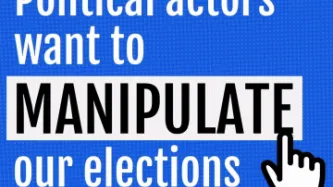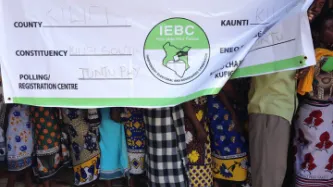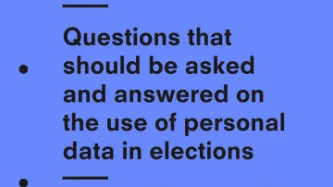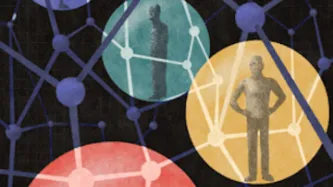Search
Content type: News & Analysis
PI is collaborating with The Carter Center election observation mission in the run up to and after Myanmar's national election on November 8th. The Carter Center is a US based NGO that has been invited to observe 111 elections in 39 countries since 1989. It has maintained a presence in Myanmar since 2013 when it's office was established in Yangon, and carried out long term observation for the 2015 election as well as 2020. The international election observer mission (IEOM) assesses the…
Content type: Examples
Less than a week before the election, the Democratic Party reported that Facebook's social media advertising systems had prevented the campaign from running some ads, allegedly resulting in the loss of more than $500,000 in potential campaign donations.
According to Facebook, the flaws resulted from a change in its political ads policy for the final week of the campaign. The policy change was intended to prevent political advertisers from uploading new ads in the week…
Content type: Frequently Asked Questions
On 27 October 2020, the UK Information Commissioner's Office (ICO) issued a report into three credit reference agencies (CRAs) - Experian, Equifax and TransUnion - which also operate as data brokers for direct marketing purposes.
After our initial reaction, below we answer some of the main questions regarding this report.
Content type: News & Analysis
Privacy International (PI) welcomes today's report from the UK Information Commissioner's Office (ICO) into three credit reference agencies (CRAs) which also operate as data brokers for direct marketing purposes. As a result, the ICO has ordered the credit reference agency Experian to make fundamental changes to how it handles people's personal data within its offline direct marketing services.
It is a long overdue enforcement action against Experian.…
Content type: Advocacy
Privacy International responded to a call for submissions by the UK Committee on Standards in Public Life ahead of their electoral regulation review.
This submission follows our recommendations on challenging data exploitation in the online political campaigning ecosystem, and suggests avenues for the Electoral Commission to adapt its regulatory powers to address the resulting privacy challenges, as well as public concerns about data-driven election campaigning.
Content type: Video
The incorporation of new technologies to electoral processes is a phenomenon with a global and exponential growth. Despite its benefits, online campaigning is not without challenges, and can pose threats to transparency and equity in electoral competition. Given the role of elections as foundational pillars of the democratic system and a key gateway for the exercise of fundamental civil rights, these implications must be assessed with care and through specific tools.
We at PI, together…
Content type: Advocacy
The entire election cycle is increasingly data dependent. This is particularly the case with political campaigns which are ever more digital and data driven. This campaign environment presents novel challenges due to the scale and range of data available together with the multiplicity, complexity and speed of profiling and targeting techniques. All of this is characterised by its opacity and lack of accountability. Existing legal frameworks designed to curtail this exploitation often also fall…
Content type: News & Analysis
Last week, Facebook announced that it would allow voters in the United States to opt out of seeing social issue, electoral or political ads from candidates in their Facebook and Instagram feeds.
Whilst Facebook’s attempt to increase the agency of users during the election period is commendable, the binary choice left to voters to either see political ads or not see them at all is a limited and short-sighted one.
Real transparency concerns are still unaddressed
Whilst Facebook…
Content type: Video
Immediately following the UK general election in December 2019, we worked with Open Rights Group to commission a YouGov poll about public understanding and public opinion about the use of data-driven campaigning in elections.
The poll used a representative sample of 1,664 adults across the UK population.
'Data-driven political campaigning' is about using specific data about you to target specific messages at you. So, for this might involve knowing that you are, for example, likely to…
Content type: Case Study
The run up to Kenya’s 2017 elections was extremely tense. Kenya has a history of violently fought elections and there was fear this election would be no different. It was in this tense environment, that companies like Cambridge Analytica and Harris Media – and their digital offerings - got involved in the election campaigns.
Cambridge Analytica’s business model is by now familiar, they compiled a huge amount of data points, often through illegal means, to create profiles on individuals –…
Content type: News & Analysis
Political campaigns around the world have turned into sophisticated data operations. They rely on data- your data- to facilitate a number of decisions: where to hold rallies, which States or constituencies to focus resources on, which campaign messages to focus on in which area, and how to target supporters, undecided voters, and non-supporters.
While data driven political campaigns are not new, the granularity of data available and the potential power to sway or suppress voters through that…
Content type: Long Read
This review is based on information in the public domain, primarily that of the platforms themselves. It is not exhaustive and this field moves with speed - however, it aims to offer a snapshot of approaches and practices.
TikTok
TikTok is a short-form video app (owned by ByteDance) which allows advertising and sponsored content. Two thirds of TikTok’s over 113 million users (are reportedly aged 16-24) and it was the second most downloaded app in 2019, beaten only by WhatsApp’s 849…
Content type: Advocacy
In order to ensure free and fair elections, it is essential that there be safeguards and protections applied to prevent the exploitation of personal data. It is important that those with responsibilities for protecting our data be transparent in order to ensure that there are effective safeguards in place, and civil society plays an important role in holding them accountable.
At Privacy International we developed the attached questions to help obtain information from bodies/authorities…
Content type: Explainer
Television offers some of the earliest instances of digital marketing. The majority of television channels rely on commercials and advertisements to maintain their operations. For the past 75 years, TV adverts have been passive transmissions broadcast to viewers, the demographics of the channels audience guiding the kinds of products and services shown during commercial breaks and intermissions. With the changes in the way individuals are now consuming content however, broadcasters are trying…
Content type: News & Analysis
This post was written by PI Policy Officer Lucy Purdon.
In 1956, US Presidential hopeful Adlai Stevenson remarked that the hardest part of any political campaign is how to win without proving you are unworthy of winning. Political campaigning has always been a messy affair and now the online space is where elections are truly won and lost. Highly targeted campaign messages and adverts flood online searches and social media feeds. Click, share, repeat; this is what political engagement looks…
Content type: Long Read
The battle for Kenyan voters’ allegiance in the 2017 Presidential election was fought on social media and the blogosphere. Paid advertisements for two mysterious, anonymous sites in particular started to dominate Google searches for dozens of election-related terms in the months leading up to the vote. All linked back to either “The Real Raila”, a virulent attack campaign against presidential hopeful Raila Odinga, or Uhuru for Us, a site showcasing President Uhuru Kenyatta’s accomplishments. As…
Content type: Press release
A new investigation published today by Privacy International reveals the role of an American data-based digital advertising company in the highly divisive online re-election campaign of Kenyan president Uhuru Kenyatta.
In the run-up to Kenya's presidential election in August 2017, paid advertisements for two mysterious sites dominated Google searches for election-related terms and flooded Kenyans' social media feeds. All linked back to either 'The Real Raila', a virulent attack campaign…
Content type: News & Analysis
30 May 2017
These days it seems that no election can go by without fears of foul play, whether it is the hacking of a candidate or party’s e-mail or the spread of fake news and other misinformation to support or discredit a particular party or politician.
Often the finger is pointed at shady individuals or rogue governments , and invariably the accusations are met with flat denial. But the accusations have attracted significant attention from governments and companies alike, with reactions…
Content type: Case Study
Political campaigns around the world have turned into sophisticated data operations. In the US, Evangelical Christians candidates reach out to unregistered Christians and use a scoring system to predict how seriously millions these of voters take their faith. As early as 2008, the Obama campaign conducted a data operation which assigned every voter in the US a pair of scores that predicted how likely they would cast a ballot, and whether or not they supported him. The campaign was so confident…
Content type: News & Analysis
Image source: AFP
Earlier this month, the Kenyan daily The Star reported that UK-based data analytics firm Cambridge Analytica had been quietly contracted by President Uhuru Kenyatta’s party in a bid to win himself a second term in office. State House officials were quick to deny the claims, while the company itself issued no comment.
Cambridge Analytica has exploded onto the scene following revelations that its psychometric profiling techniques were used and reportedly played a role in…
Content type: Advocacy
Earlier this month, it was reported that UK-based data analytics firm Cambridge Analytica had been quietly contracted by President Uhuru Kenyatta’s party in a bid to win a second term in office. Privacy International has written to Cambridge Analytica to learn more about how the company assessed the risk of its work in Kenya and how it will ensure that Kenyans’ personal data will be protected.
Content type: Long Read
Disclaimer: This piece was written in April 2017. Since publishing, further information has come out about Cambridge Analytica and the company's involvement in elections.
Recently, the data mining firm Cambridge Analytica has been the centre of tons of debate around the use of profiling and micro-targeting in political elections. We’ve written this analysis to explain what it all means, and the consequences of becoming predictable to companies and political campaigns.
What does…


















